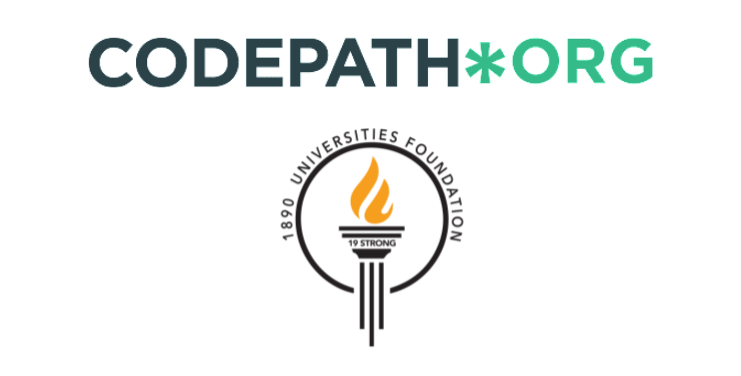Interested in getting HBCU stories straight to your inbox? SIGN UP for our executive HBCU newsletter to make sure you get exclusive videos, news and analysis in your inbox every Wednesday morning.
KEY INSIGHTS
- Last fall, Walmart announced it was investing $1.6 million to help prepare HBCU students for tech careers.
- Up to eight HBCUs will have access to software engineering courses, internships and mentorship opportunities through the initiative.
- The ultimate goal is to get more HBCU students in FAANG and Fortune 100 companies.
In June 2020, in the wake of the murder of George Floyd and the subsequent protests, Walmart and the Walmart Foundation pledged $100 million over five years to help address racial disparities. Through that pledge, the retail giant announced last fall it was investing $1.6 million to help prepare HBCU students for tech careers.
Now, that initiative is taking shape.
Walmart’s investment is bringing CodePath, a nonprofit focused on diversifying the nation’s most competitive technical roles and driving systemic change in schools, to HBCUs through a partnership with the 1890 Universities Foundation, which works with 19 HBCUs that were created as a result of the Morrill Act of 1890 establishing land-grant Black colleges.
“After the waves of protest after George Floyd, a lot of companies were trying to figure out what they could do to invest in racial equity,” Michael Ellison, CEO and co-founder of CodePath, told The Plug.
“A lot of efforts previously were kind of check the box on ‘Let’s send one or two recruiters to an HBCU’ but then they don’t hire anyone,” Ellison said.
However, HBCUs play an outsized role in educating Black computer science majors. In 2020, HBCUs — which represent just three percent of U.S. colleges — were responsible for graduating 10 percent of Black computer science majors, according to a new report from the non-profit Kapor Center and the NAACP.
CodePath aims to put more HBCU students in FAANG and Fortune 100 companies. Starting next fall, up to eight 1890 institutions will have courses in Android, iOS or cybersecurity that are facilitated by CodePath.
The non-profit will also train and give $3,000 to $5,000 stipends to students and faculty to help teach the course at their respective campuses. In Spring 2023, they will also offer a web development course.
CodePath also runs multiple internship programs to give students hands-on technical work experience and mentorship. Another key piece of CodePath’s offering is a rigorous, months-long training to help students prepare for the technical interview, a key part of the interview process for some of the most competitive tech jobs.
“You go to a Stanford University, they literally have a course that’s called passing the Google interview,” Ellison explained.
“They have tons of alumni that have workshops and help each other to connect. And they’ll say, ‘Hey I’m currently at Google, I’m going to tell you what you need to do and how you need to do it, and give you a fast track.’ And since a lot of these tech companies haven’t historically hired out of these HBCUs, then they’re missing the social capital, they’re missing the coursework and the preparation needed,” he added.
Software engineering is a lucrative field. The average salary for an engineer at a large enterprise is $155,000, according to Hired’s 2022 State of Software Engineers report.
But Black people are not fairly represented. In 2021, only 5.4 percent of software developers were Black, yet they represent 13 percent of the labor force, according to the Bureau of Labor Statistics.
CodePath has had some success diversifying some of the top technical roles in the US. Nearly 500 CodePath alumni are now software engineers at FAANG companies and over 60 percent of students are working at Fortune 100 companies, according to a CodePath spokesperson.
Of the Black and Latinx CodePath alumni, 85 percent now work in tech as software engineers.
In the next five years, Antonio McLaren, Vice President for Programs at the 1890 Universities Foundation and a two-time alumnus of Virginia State University, hopes to see that success replicated at HBCUs.
“[Success] from a student standpoint, it’s essentially demonstrating that we are supporting the pipeline of students graduating from CS programs at the university level into full-time careers where they’re actually taking their degree and applying it in real-time,” McLaren told The Plug.
Ellison echoes that sentiment.
“We want to do more and more to bolster the capacity of these schools,” Ellison said. “Then we want to see that translate to more and more of their students getting the most competitive technical roles, at FAANG companies, top 100, which would also correlate with the highest economic mobility.”








